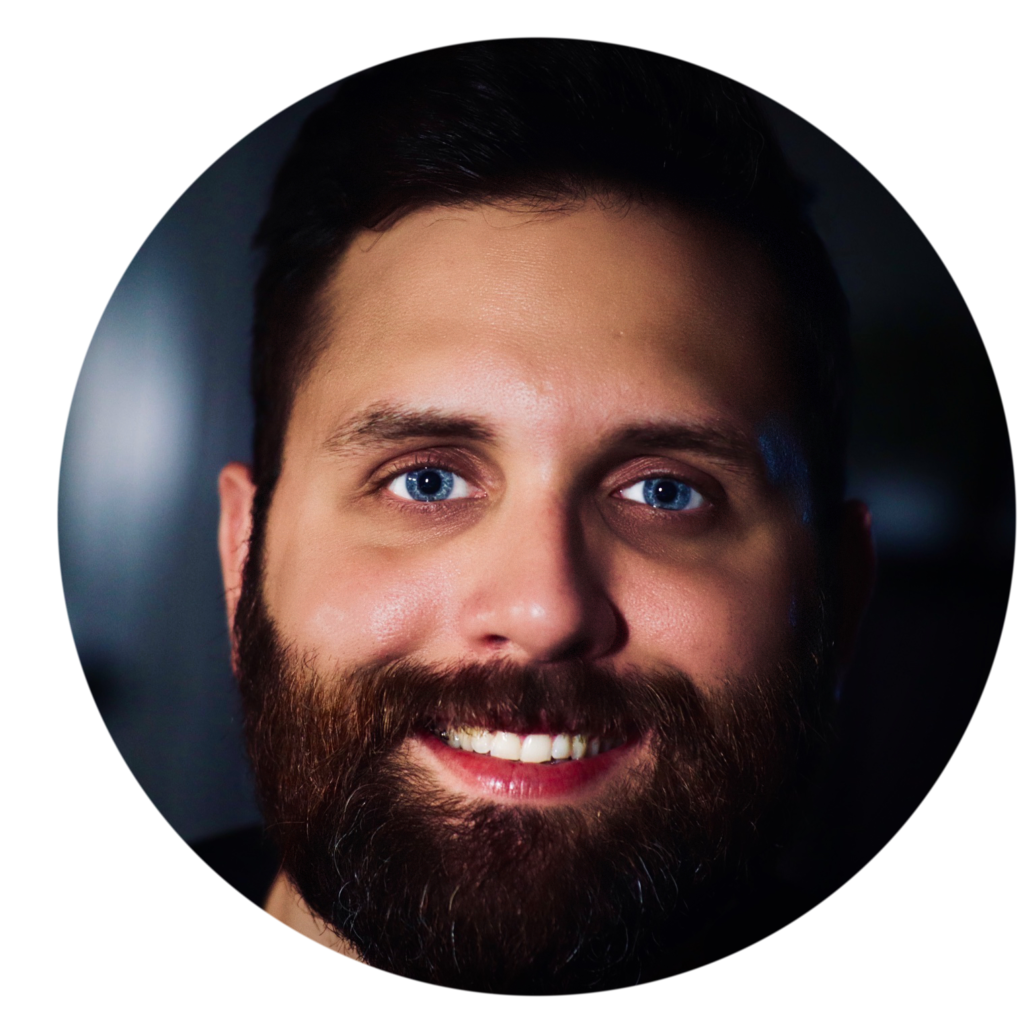
Tim began his Faithwalking journey in 2013 and has served Faithwalking in a number of ways over the years such as through coaching and website and marketing support, in addition to serving as a member of the board. Professionally, Tim helps businesses and nonprofits engage their community and customers in meaningful and relevant ways to increase their impact and accomplish their goals. Tim is married to Shannon, and they have two toddlers and a dog.
“I absolutely love my life. I’ve been blessed with a wonderful family and work I enjoy. Each day brings with it unique challenges, but I am more fulfilled today than I have been at any other point in my life.”
Q: Tell us about you. Who are you? How did you get connected with Faithwalking (FW)?
A: My name is Tim McGee, and I live in Houston, TX. I am married to Shannon McGee and have two wonderful toddlers who are full of energy – and as of today I have mostly slept the last two nights, which is wonderful!
I got connected to FW through my dad, who started doing FW in 2012. It started out with him doing the normal stuff, asking to share his homework, having Transformation Conversations with me, etc. But where it really started to make an impact is when I genuinely started to see a difference in how he was showing up. That was fascinating – it was intriguing – it was powerful. So eventually I decided I would l give it a shot.
Question: Describe something in your life that you were not aware of before FW. What was the impact of that lack of awareness in your life?
Answer: I’m not quite sure what I was truly aware of before Faithwalking. But looking back, my lack of capacity to see my reactivity – much less curiosity about it – resulted in a lack of workability and countless painful integrity gaps throughout every area of my life.
I was particularly blind to the role that shame played in my life. I was confident in my actions, and so I assumed that that meant that I was a confident guy. But in reality, as I dug a little bit deeper, I was able to discover all the places that shame was controlling my actions and where I was reacting to that shame, and honestly the impact was significant. I just really did not have much control over how I showed up in my life, because of my shame. I was afraid of being exposed as incompetent; I was afraid of not looking good, of looking dumb – it was pervasive. It impacted everything that I did. Before Faithwalking, since I was not aware of my shame, I didn’t have any chance to respond thoughtfully when it would spike.
Q: What has changed through FW? How are you different?
A: It’s hard to neatly define how I am different because of Faithwalking because I truly see myself, the world around me, and my pursuit of Jesus through a different lens than I did before beginning this journey. My whole perspective on life has changed. While I have further to go than the ground I’ve covered to this point, I now have a more clear, hopeful, and life-giving vision of what it looks like to be a disciple of Jesus, pursuing wholeness in myself, my relationships, in my community, and throughout creation.
Q: Describe the vision you have of your best self.
A: I want to be someone who lives, hopes, and loves fully, giving my time, attention, and energy to the plans, people, and places God has put before me. I want to be in relationships where I am truly known and know others. I want to be pursuing wholeness in myself, my family, my community, and around the world.
Q: Describe the vision you have for FW in 5 years.
A: My vision for FW in 5 years is to see it grow in fulfilling its mission and see it impact even more lives. I want to see FW impacting more and more people; I want to see it in more and more churches; I want to see more people across the world participating, more cultures and communities and societies being impacted. I see an expanding community of Faithwalkers pursuing wholeness in their lives and in their contexts.
Q: What is one of the most helpful tools you have learned in FW?
A: Learning to be aware of and manage my anxiety – and being able to recognize the physiological signs of anxiety and recognize when I might be having an anxious response – has been so helpful. Learning to get curious when my anxiety spikes is so vital to practicing showing up as the person I want to be, as my best self – recognizing my anxiety and then having some practical steps for responding thoughtfully in those moments. Also knowing when to not respond at all, recognizing when I am not capable in the moment of thinking clearly and that maybe it’s best that I close my mouth for the time being and wait until I am thinking more clearly.


